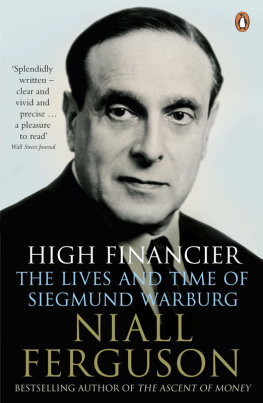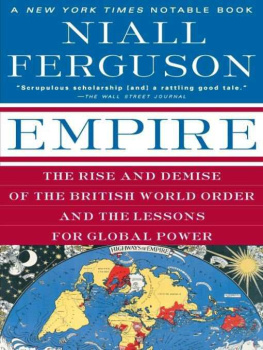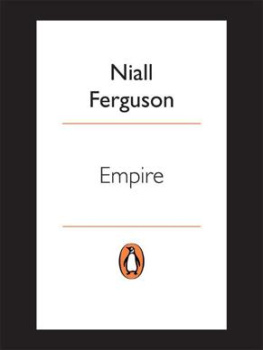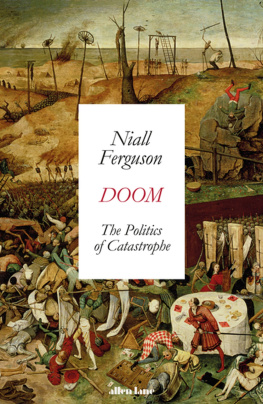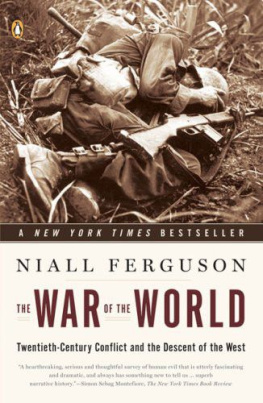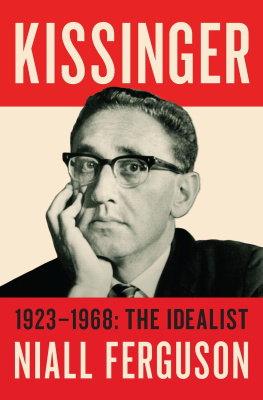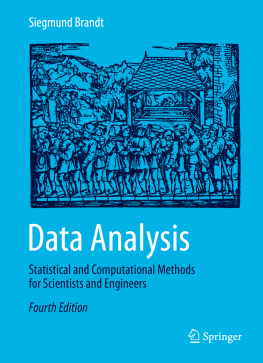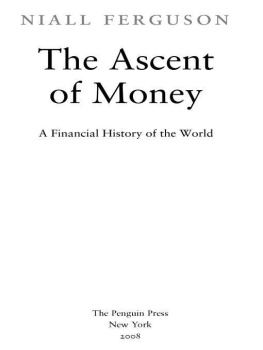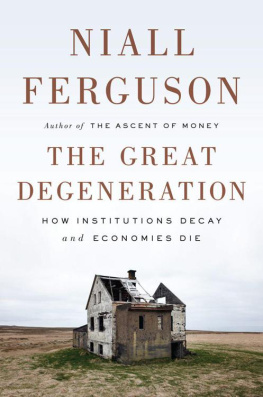Niall Ferguson - High Financier: The Lives and Time of Siegmund Warburg
Here you can read online Niall Ferguson - High Financier: The Lives and Time of Siegmund Warburg full text of the book (entire story) in english for free. Download pdf and epub, get meaning, cover and reviews about this ebook. year: 2010, publisher: Penguin UK, genre: Romance novel. Description of the work, (preface) as well as reviews are available. Best literature library LitArk.com created for fans of good reading and offers a wide selection of genres:
Romance novel
Science fiction
Adventure
Detective
Science
History
Home and family
Prose
Art
Politics
Computer
Non-fiction
Religion
Business
Children
Humor
Choose a favorite category and find really read worthwhile books. Enjoy immersion in the world of imagination, feel the emotions of the characters or learn something new for yourself, make an fascinating discovery.
- Book:High Financier: The Lives and Time of Siegmund Warburg
- Author:
- Publisher:Penguin UK
- Genre:
- Year:2010
- Rating:4 / 5
- Favourites:Add to favourites
- Your mark:
High Financier: The Lives and Time of Siegmund Warburg: summary, description and annotation
We offer to read an annotation, description, summary or preface (depends on what the author of the book "High Financier: The Lives and Time of Siegmund Warburg" wrote himself). If you haven't found the necessary information about the book — write in the comments, we will try to find it.
Bestselling author Niall Ferguson reveals for the first time the true extent of Siegmund Warburgs influence-and the lessons we can learn in a time of crisis from the last of the high financiers.
Success from the financial and from the prestige point of view . . . is not enough; what matters even more is . . . adherence to high moral and aesthetic standards.
-Siegmund Warburg, 1959
In this pathbreaking new biography, based on more than ten thousand hitherto unavailable letters and diary entries, bestselling author Niall Ferguson returns to his roots as a financial historian to tell the story of Siegmund Warburg, an extraordinary man whose austere philosophy of finance offers much insight today.
A refugee from Hitlers Germany, Warburg rose to become the dominant figure in postwar City of London and one of the architects of European financial integration. Seared by the nearcollapse and then Aryanization of his familys long-established bank in the 1930s and then frustrated by the stagnation of its Wall Street sister, Kuhn Loeb, in the 1950s, Warburg resolved that his own firm of S. G. Warburg (founded in 1946) would be different.
An obsessive perfectionist with an aversion to excessive risk, Warburg came to embody the ideals of the haute banquet-high finance- always eschewing the fast buck in favor of gilt-edged advice. He was not only the master of the modern merger and founder of the eurobond; he was also a key behind-the-scenes adviser to governments in London, Tokyo, and Jerusalem-to his critics, a financial Rasputin. Like a character from a Thomas Mann novel, Warburg was a complex and ambivalent man, as much a psychologist, politician, and actor-manager as he was a banker. In High Financier Niall Ferguson shares the first book-length examination of a man whose life and work suggest an alternative to the troubled business principles that helped shape our current financial landscape.
**
Niall Ferguson: author's other books
Who wrote High Financier: The Lives and Time of Siegmund Warburg? Find out the surname, the name of the author of the book and a list of all author's works by series.

